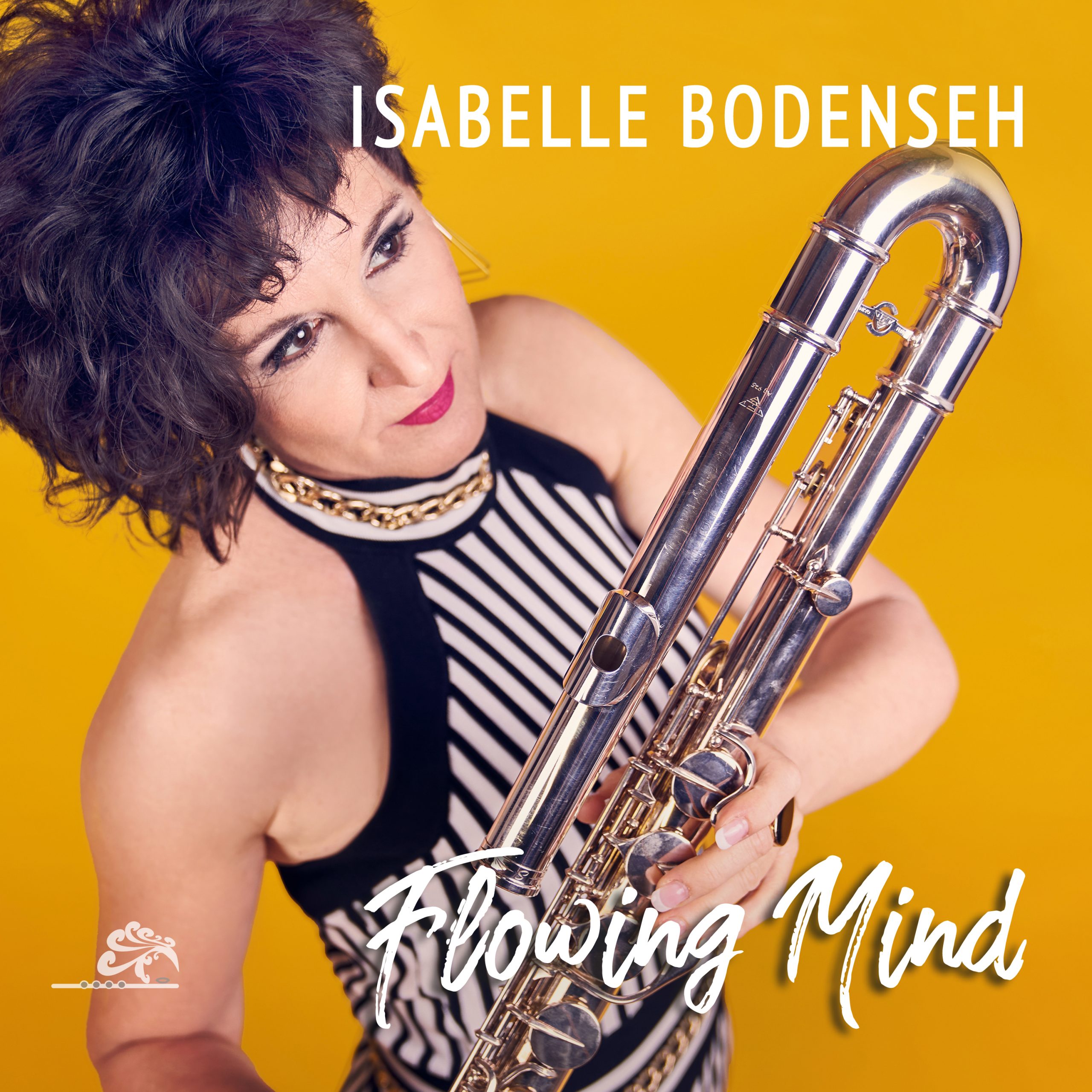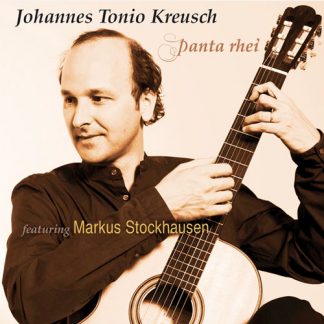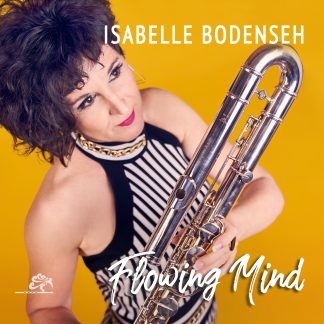Description
Isabelle Bodenseh – flutes
Thomas Bauser – Hammond organ
Lorenzo Petrocca – guitar •
Lars Binder – Drums
Hilde Singer-Biedermann – violin (Radio Bonus Track 9)
Ruth Sarrazin – Cello (Radio Bonus Track 9)
The combination of flute and organ trio is refreshingly unspent and appealing, especially when it comes along with as much ingenuity as it does with Isabelle Bodenseh, Thomas Bauser, Lorenzo Petrocca and Lars Binder, who already attracted attention in 2018 with the album “Mrs. Bo’s Cookbook”. Not only do the four of them swing incessantly and challenge each other with crafty and inspiring original compositions, they even form a grooving organic unity that is downright exemplary for this combination of instruments.
The flute and the Hammond organ led a shadowy existence in jazz for a long time and moved into the centre of attention almost simultaneously in the mid-1950s. The organ’s rise was meteoric: the fashionable instrument of soul jazz in the 1960s appeared only twenty years later as a precursor of the synthesiser, its ageing stars as the last dinosaurs; but then came its comeback.
The flute, on the other hand, remained constantly popular as mankind’s original instrument, and its history is less marked by highs and lows. Nevertheless, its most famous jazz representatives are also those who were active in the 60s and 70s. Despite all the parallels, the paths of the flute and the organ largely followed separate paths. Of course, there are enough recordings of Roland Kirk, Jerome Richardson, Herbie Mann, Hubert Laws and other flute stars with organ, but the preferred guest of an organ trio in the classical line-up Hammond, guitar, drums has always been the tenor saxophone.
This is probably because flutists were expected to play in a relaxed, purring manner, and this is what they got. Isabelle, however, shows with the temperament and power of her often boiling hot playing on the flute that one is not bound to the cliché who can also do otherwise! Rarely since then have flute-organ pairings achieved such astonishing homogeneity and finely tuned playing culture as we can admire on this album. This is already evident in the opener “ConFluting”. In order to fit this uptempo piece on the bass flute without swallowing the frequencies, the quartet had to play “classically dynamic and chamber music-like”, Isabelle explains: “From my side, music can’t be quiet enough in many moments. That’s where classical music, with its pre-notated and very differentiated dynamic indications, has clear advantages!”
The title refers to the fact that she found everything “extremely confusing” in times of the pandemic and came about after a bout of writer’s block. It’s hard to believe that such an unpleasant feeling can inspire such definite music as “ConFluting”. The four are always very concentrated, deeply immersed, in the flow. Which brings us to the title theme: “Flowing Mind”. As a five-year-old, Isabelle discovered the “silver instrument with the flowing sound”, which became her “constant life companion”.
The Corona vacuum – deprivation of playing and threat to her existence in one – had “taken her breath away, which is the absolute basis and source of my flute playing”. In July 2021, she “finally drove to a ‘real’ gig again. I got in the car, closed the car door and the world stayed outside. Time with myself. Silence. Time out. As I drove, I listened to the soothing sound of the road, gazed at ever-changing landscapes, and initial thoughts rose in me. I was cautiously looking forward to the venue, the audience and the music. The positive adrenaline caused a firework of promising ideas to ignite again for a long time, an inner dam broke and I could finally breathe better. I dived into the musical world of flowing thoughts. That’s how the composition Flowing Mind was born, which for me became the title track of the new album.”
It is the soundtrack of her life. And proof of the magic inherent in the elixir of life, music, which envelops people in a subtle cocoon, as it were, and carries them through crisis-ridden times. The “flowing mind” also plays a major role in the musical and family life of the mother of a severely handicapped daughter: “I am and we are as a family living improvisation! The necessary independence, flexibility and tolerance for new paths outside the mainstream keeps everything flowing professionally and privately, nothing is set in stone. Jazz in particular, but also music in general and every art form, are an endless source of inspiration for all of life.”
Compositions also often change like growing children. Originally, “Sans Moi” was conceived as a solo piece for an oboist, a piece she herself did not want to play in, then over time the number took on a deeper and deeper meaning as an ensemble member passed away and wished for “Sans Moi” to be his “last melody” at the funeral. What tenderness there is in this recording! How gently Lorenzo plays this melody, Lars drums as if he were walking on eggshells, Thomas weaves the finest fabric. And Isabelle simply touches the heart!
“I find it enriching to be able to look directly into the soul of a musician through his improvised solo”, she once said. The half-Frenchwoman sees herself as a “free world musician with a universal understanding of music without barriers”. Without putting her classical flute finesse to one side, Isabelle has steadily expanded her palette of timbres and her stylistic radius.
Her time in Cuba, where she studied Afro-Cuban music, was formative. Since then, she has been a master of the Latin idiom, as not only her piece “ASAP” shows. She has perfected and personally expanded the “hot” techniques once developed by jazz flutists in very noisy surroundings, such as overblowing, simultaneous singing in or rhythmic key noises. Much of this can be heard on “Chilli Challi” or “Dog Rose”, Lars’ impressions from Juist, where she has some of the wild nature of the North Sea island in her “blowing”. This “organ trio” knows how to cook on the back burner. That’s where the espresso gets better, that’s where Isabelle’s well-rested full-blooded flute gets more exuberant.
A “soul brother” is Lorenzo Petrocca, whose warmth and depth is revealed in his playing and with whom she recorded the duo album “Essenza” (GLM EC 587-2) three years ago. He comes from the Pythagorean city of Crotone, to which he dedicated his “Mediterranean Bossa”.
As a soloist and accompanist, Thomas Bauser is a clairaudient communicator (listen to how he seamlessly continues Lorenzo’s thoughts in “Molecular Cooking”), who always captures the essence of a piece and to whom the organist-typical “overplay” is alien.
You first have to find a drummer like Lars Binder, who effortlessly replaces not only a melody instrument but also a chord instrument (note the passages where he plays in duo with Isabelle).
Whistling or humming along to Isabelle’s compositions is anything but child’s play. You will notice that, despite their catchy melodies, they have unusual turns in the melodic course or unexpected harmonic changes.
Just like in real life – a “flowing mind” knows how to deal with them.
For concerts look here: https://www.isabellebodenseh.de/concerts/






Reviews
There are no reviews yet.